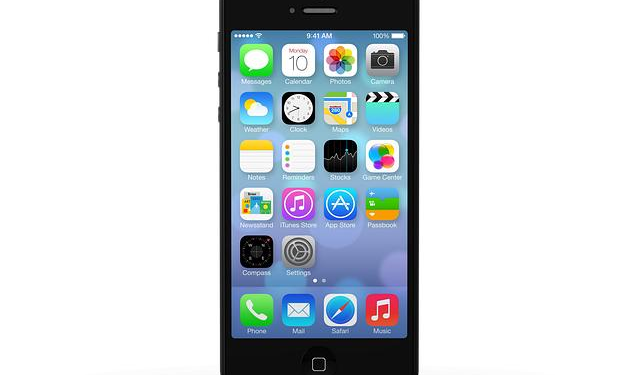in a groundbreaking move aimed at enhancing the educational environment, Zhengzhou has become the first city in China to implement a ban on cellphone use in schools. The decision, which affects primary and secondary institutions throughout the region, has sparked significant discussion among educators, parents, and students alike. Advocates argue that the prohibition is a necesary step to reduce distractions and improve academic performance, while critics raise concerns about the implications for student privacy and digital literacy. As the policy takes effect, its impact on teaching methods, student engagement, and overall learning outcomes will be closely scrutinized, positioning Zhengzhou at the forefront of a national debate on the role of technology in education. This article delves into the motivations behind this pioneering ban, the reactions it has elicited, and the potential consequences for the future of schooling in China.
Zhengzhou’s Landmark Decision on Cellphone Use in Schools
Zhengzhou has made headlines as the pioneering city in China to implement a complete ban on cellphone use within educational institutions. This landmark decision stems from growing concerns over the impact of mobile devices on students’ attention spans and academic performance. As technology continues to intertwine with daily life, officials argue that the presence of cellphones in classrooms distracts students from their studies, leading them to engage more with their devices than the learning material. The city’s education bureau has emphasized the importance of fostering a focused learning environment where students can thrive without the constant pull of digital distractions.
The policy will be gradually rolled out across schools in the city, starting with a series of awareness campaigns aimed at both students and parents. Key points of the initiative include:
- Implementation of strict rules prohibiting cellphone usage during school hours.
- Encouragement of alternative learning methods that do not rely on digital screens.
- Collaboration with parents to ensure compliance and promote healthier habits at home.
Through this initiative,Zhengzhou aims to set a precedent for other cities in China,shifting the focus back to traditional teaching methods while perhaps reshaping students’ academic experiences for the better.

Impact of the Ban on Student Learning and Attention
The recent ban on cellphone use in Zhengzhou schools marks a significant shift in the educational landscape, with immediate implications for student learning and focus. By eliminating the distractions that mobile devices often bring into the classroom, educators anticipate enhanced engagement and improved academic performance. This policy aims to cultivate an environment where students can fully immerse themselves in lessons,fostering better retention of facts and more meaningful interactions with peers and teachers.The benefits of reduced screen time extend beyond academic metrics, potentially enhancing overall cognitive development and encouraging more traditional methods of study.
Moreover, the ban may lead to a noticeable transformation in student behavior and attention spans. Possible impacts include:
- Increased participation in classroom activities
- enhanced social skills through improved face-to-face interactions
- Reduced instances of cyberbullying and digital distractions
As students adapt to a cellphone-free environment, educators can focus on implementing innovative teaching methods that utilize collaborative work and hands-on learning experiences. Over time, the long-term effects of this policy could result in a generation of students who are not only more focused but also more capable of critical thinking and problem-solving—skills necessary for success in an increasingly complex world.

responses from Parents and Educators on the Policy shift
The recent decision to ban cellphones in schools has sparked a mix of reactions from parents and educators in Zhengzhou. Many parents have expressed their support for the policy, emphasizing the importance of reducing distractions that smartphones can create in educational environments. A mother of two highlighted that, “It’s difficult for kids to focus on studies when they’re constantly checking their messages.” Conversely, some parents are concerned about the potential downsides, such as limiting students’ access to necessary communication tools during school hours. they argue that in emergencies, having a cellphone can be crucial for a child’s safety and communication with parents.
Educators have also shared their perspectives on the policy shift, with many welcoming the change as a step towards improving student engagement and performance. A high school teacher pointed out that, “By removing cellphones, we can foster a more interactive classroom atmosphere.” Others have suggested providing alternative resources, such as classroom tablets and computers, to ensure that technology still plays a role in education without the downsides of personal devices. Here’s a summary of the sentiments voiced:
| Group | Support for Policy | concerns |
|---|---|---|
| Parents | Reduced distractions | Limited communication during emergencies |
| Educators | Improved classroom engagement | Need for alternative tech resources |

Comparative Analysis of Cellphone Regulations in Global Education Systems
The recent decision by Zhengzhou to become the first city in China to implement a ban on cellphone use in schools has sparked significant discussion regarding the broader implications of such regulations within global education systems. Countries around the world have adopted various approaches to managing technology in educational settings, often reflecting their unique cultural and infrastructural contexts. As a notable example,while some nations focus on complete bans,others have opted for regulated use,allowing students to access devices during specific times or under certain guidelines. This comparative analysis highlights a spectrum of strategies:
- Complete Ban: Countries like France enforce total bans on cellphone use in schools, emphasizing focused learning environments.
- Regulated Use: In Finland, schools allow cellphones during breaks but encourage responsible use to enhance educational experiences.
- Promoted Integration: In South Korea, cellphones are integrated into the curriculum, with educators employing them as learning tools.
- Flexible Policies: The united States sees varying regulations by district, creating a patchwork of cellphone policies across schools.
The effectiveness of these regulations is often debated,with proponents arguing that restricting cellphone use can lead to improved attention spans and better academic performance. Conversely, critics raise concerns about the potential limitations that such bans can impose on students’ ability to acquire digital literacy skills essential for their future careers. To illustrate these differing educational philosophies,consider the following table summarizing various countries’ approaches:
| Country | Regulation Type | Purpose |
|---|---|---|
| France | Complete Ban | Enhance concentration and minimize distractions. |
| Finland | Regulated Use | Encourage responsible digital citizenship. |
| South Korea | promoted Integration | Utilize technology as a learning resource. |
| USA | Flexible Policies | Adapt to local needs and educational goals. |

Strategies for Implementing Effective Technology Policies in Schools
Implementing effective technology policies in schools requires a nuanced approach that balances the benefits of technology with potential distractions. One key strategy is to establish clear guidelines regarding the use of devices, which can be achieved through stakeholder collaboration. Engaging teachers, parents, and students in discussions about how technology impacts learning allows for a range of perspectives to be considered. This collaborative effort can lead to the creation of policies that are adaptable yet firm, addressing concerns regarding academic integrity and personal responsibility.
Another vital aspect of technology policy implementation is the emphasis on professional development for educators.Training teachers to effectively integrate technology into their classroom can enhance the educational experience while minimizing the risk of misuse. Workshops focusing on instructional strategies, digital citizenship, and managing classroom behavior with technology can empower educators.Additionally, ongoing support through mentorship and resources ensures that teachers feel confident in their ability to navigate these policies. Below is a summary table showcasing critical areas of focus for technology policies:
| Focus Area | Strategies |
|---|---|
| Device usage | Set clear usage guidelines in schools |
| Educator Training | Provide ongoing professional development |
| Student engagement | Involve students in policy formulation |
| Parental Involvement | Hold informational sessions with parents |
Future Implications for Educational Standards and Student Well-being
the decision by Zhengzhou to become the first city in China to ban cellphone usage in schools may serve as a precedent for educational policies nationwide. As concerns regarding the negative impact of mobile devices on student focus and mental health grow, other regions might begin to reevaluate their approaches to technology in the classroom. Key areas to consider include:
- The preservation of attention span: Reduced exposure to distractions can foster deeper engagement with learning materials.
- Emotional health benefits: Limiting screen time may lead to better interpersonal interactions, afterward decreasing anxiety and stress levels.
- Improved academic performance: With fewer distractions, students may perform better on assessments and class assignments.
Conversely, this shift raises questions about how educational standards will evolve in relation to technology integration and student wellness. Schools now face the challenge of finding a balance between fostering technological literacy and minimizing its adverse effects. Potential strategies to explore could include:
| Strategy | Description |
|---|---|
| Curriculum redesign | Integrate technology in a purposeful manner,focusing on critical thinking and collaborative projects. |
| Teacher training | Equip educators with skills to manage classroom dynamics in a tech-free environment while promoting innovation. |
| student workshops | Facilitate sessions to help students develop self-regulation skills and understand the implications of digital usage. |
In Retrospect
Zhengzhou’s decision to ban cellphone use in schools marks a significant shift in China’s approach to education and technology. As the first city to implement such a measure, Zhengzhou is paving the way for a national conversation about the role of mobile devices in the classroom. Advocates argue that reducing distractions can enhance focus and academic performance, while critics voice concerns about the potential socio-economic implications of such a policy. As this initiative unfolds, it will be crucial to monitor its impact on students, educators, and the broader educational landscape in China.The outcome of this landmark decision could set a precedent for other cities and provinces grappling with the challenges posed by technology in modern education.As Zhengzhou forges ahead, the world watches closely to see how this bold move shapes the future of learning in the digital age.















